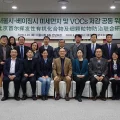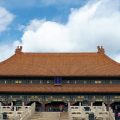Training on Climate Change and Air Quality Co-Control for ICLEI Members in Asia
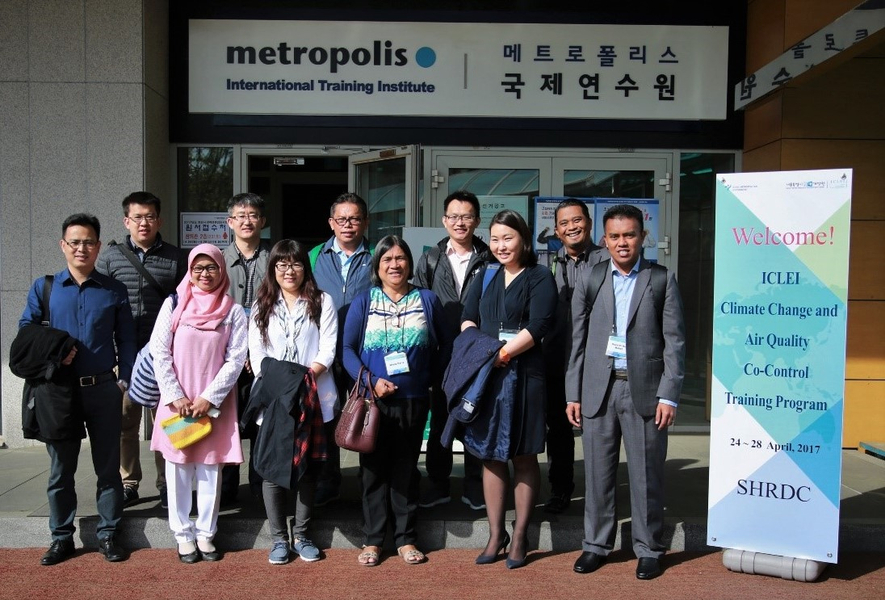
Local governments are playing an increasingly important role in addressing climate change. The significance of low carbon and sustainable city development was repeatedly mentioned in the UN Sustainable Development Goals (SDGs). Many Asian cities, however, are not only confronting both climate change and air quality issues, but are also having insufficient capacities to solve these problems.
In response to the situation, the Seoul Human Resource Development Center (SHRDC) and the ICLEI East Asia Secretariat co-hosted the Capacity Building Program on Climate Change and Air Pollution Co-Control from 24-28 April 2017 in Seoul, aiming to provide training opportunities on climate change and air pollution co-control to local government officials, and to facilitate sustainable environmental policies exchange between Asian cities. This is the second training program jointly organized by SHRDC and ICLEI since 2016.
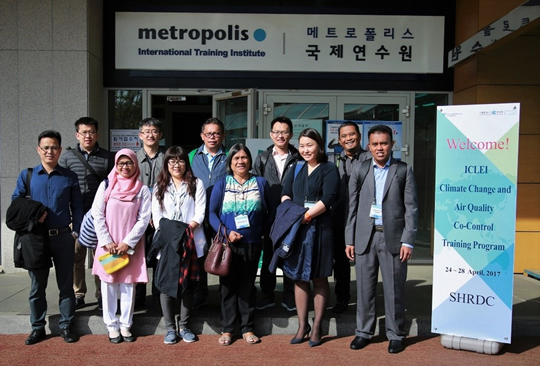
11 participants of the training program in front of the training center
11 public officials from 9 ICLEI Member cities in Asia, including Jinan, Foshan (China), Kaohsiung, Tainan (Chinese Taipei), Balikpapan (Indonesia), Melaka (Malaysia), Pasig (Philippines), Borongan (Philippines), and Ulaanbaatar (Mongolia) attended the 5-day training.
In order to enhance the capacity of local government officials in the field of climate change and air quality improvement, the program included experience-sharing, round-table discussion, case studies presentation, policy introduction, and field trips to significantly low carbon and sustainable city projects in Seoul.
Experts from the Seoul Institute, Seoul Metropolitan Government, and the University of Seoul shared successful practices and policies of climate change, environment, sustainability, and sustainable waste management. ICLEI East Asia also invited international experts to provide special training to the participants, which included a participatory section on identifying, quantifying and integrating co-benefits, and a software package workshop on the application of LEAP-IBC Analytical tool for achieving co-benefits from carbon emissions reductions. These helped participants to understand the present day and future emissions, and the impacts on human health.
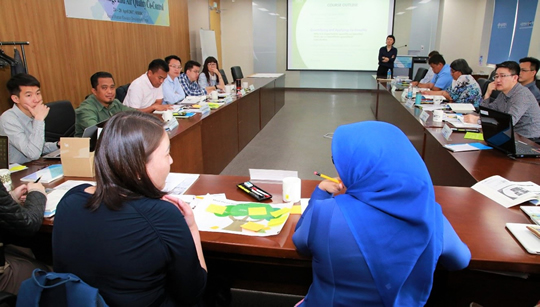
Participants shared opinions during the training program
In addition to the lectures and workshops, participants also visited the Energy Dream Center, Mapo Resource Recovery Facility, Noel Fuel Cell Power Plant, World Cup Eco Park (Nanjido Landfill Regeneration), air quality control and monitoring system, climate change adaptation-disaster monitoring system, Seoul City Hall and Citizen’s Hall, and Cheonggycheon Museum. These allowed the participants to combine the knowledge they obtained from the lectures with hands-on learning experiences.
During the training, participants presented local actions taken by their cities and shared climate change and air quality-related policies and practices with their fellow trainees. As a follow-up, participants have also made a commitment to implement the action plans they have drafted for their cities based on the information they have obtained through the capacity-building program.
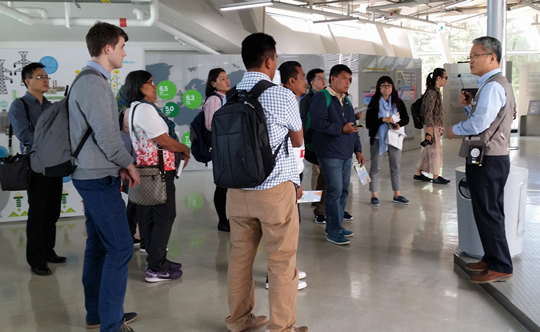
Participants visited the Energy Dream Center.
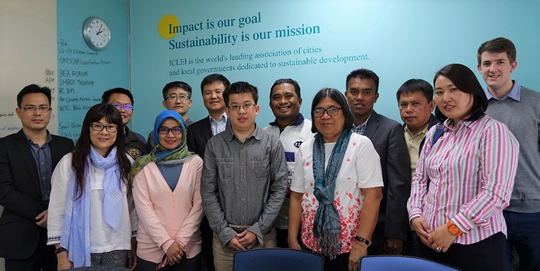
Participants visited ICLEI East Asia.


